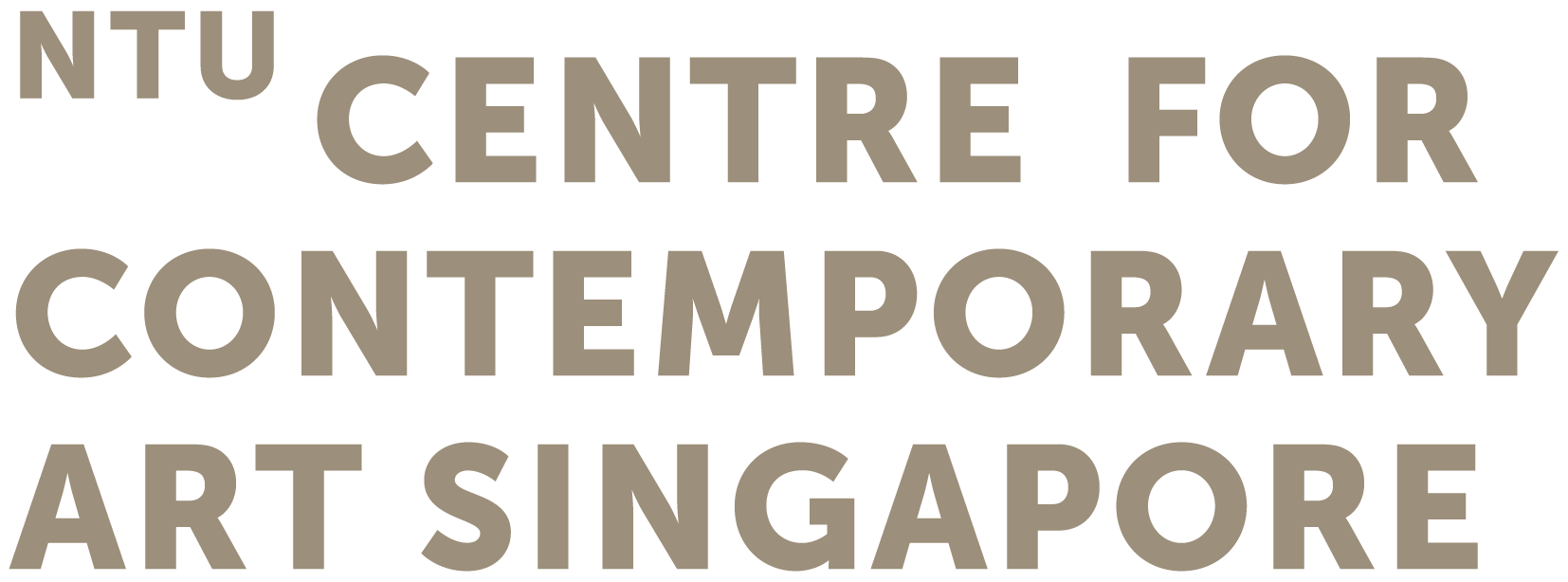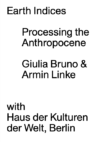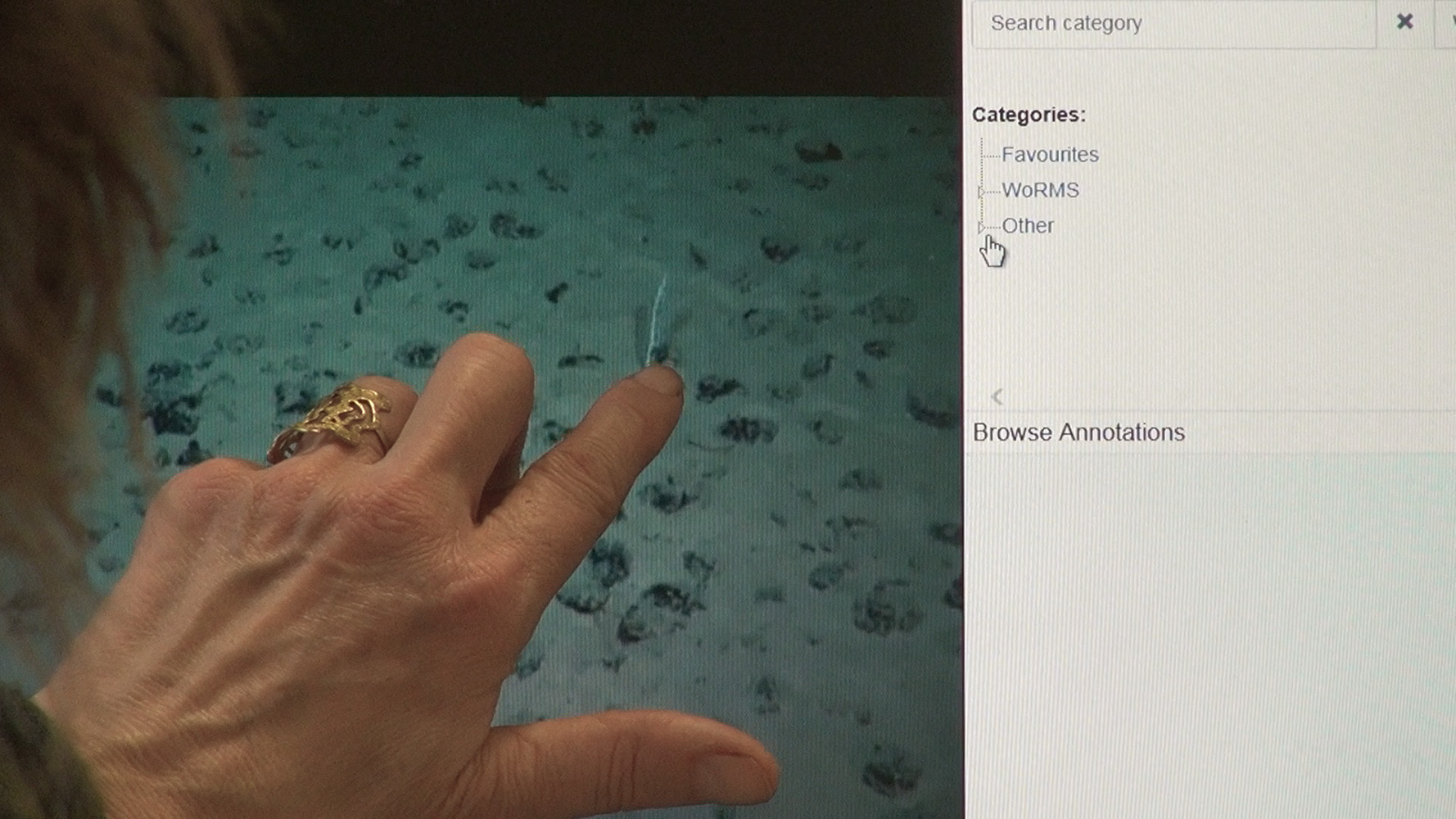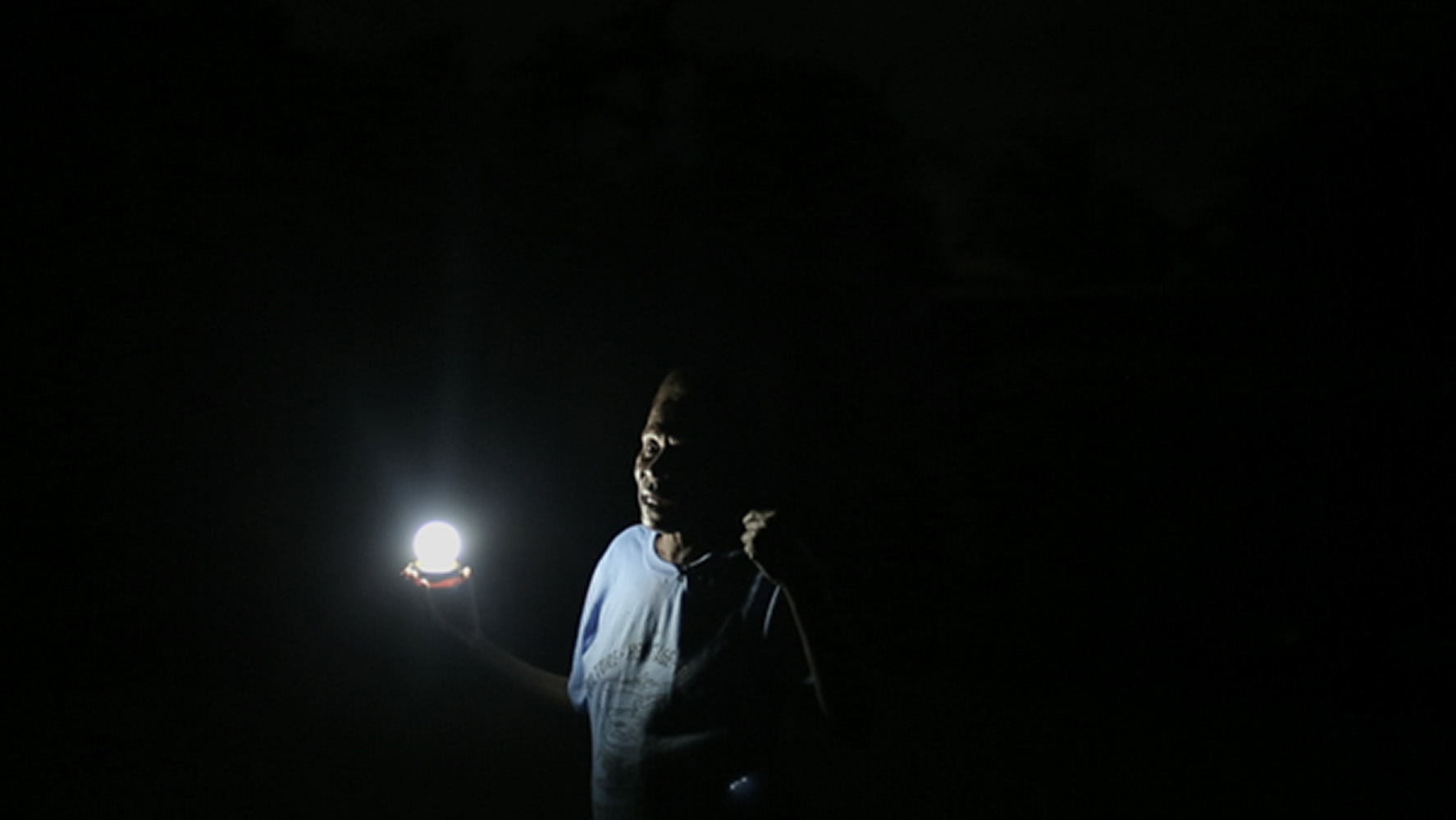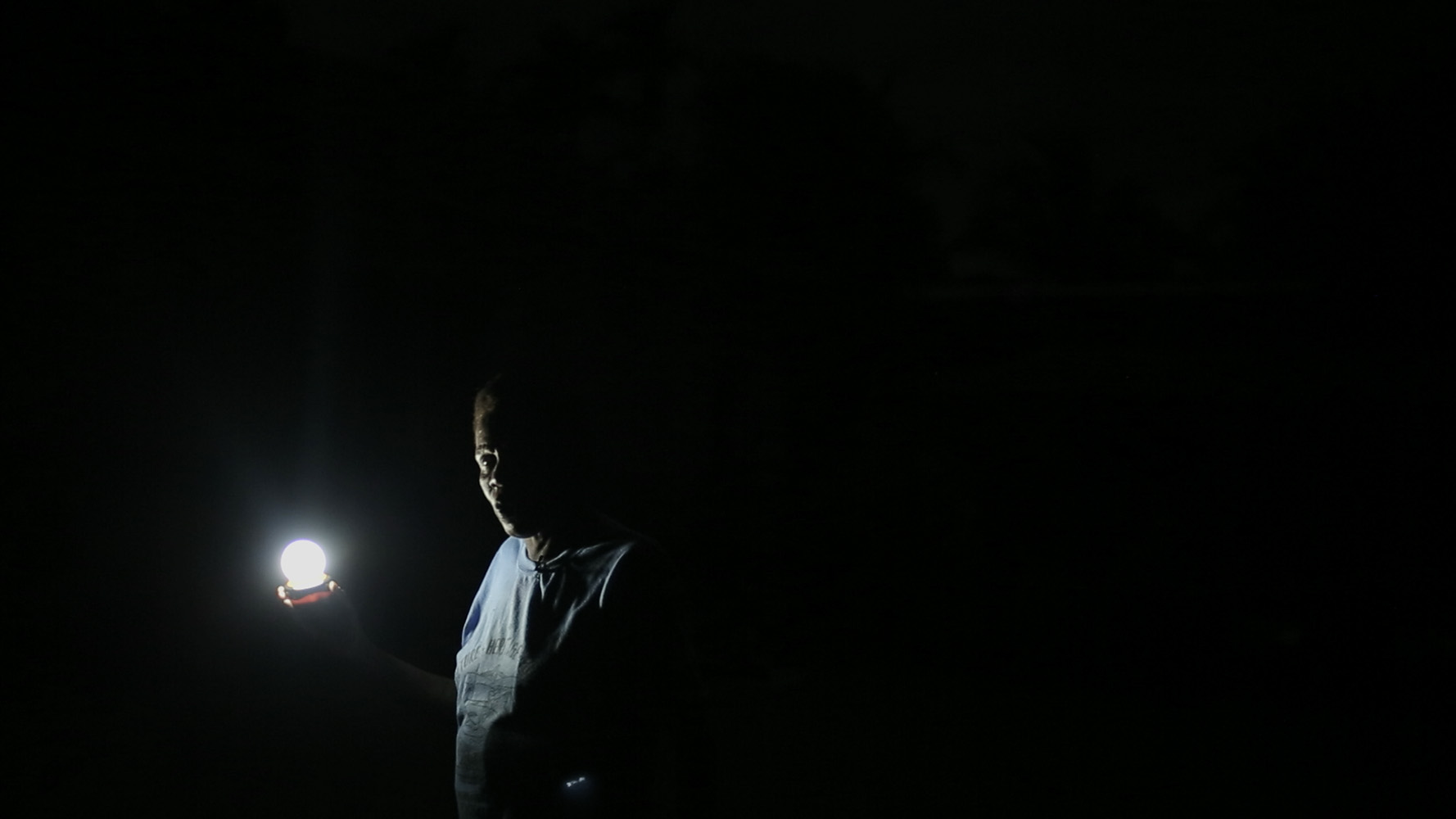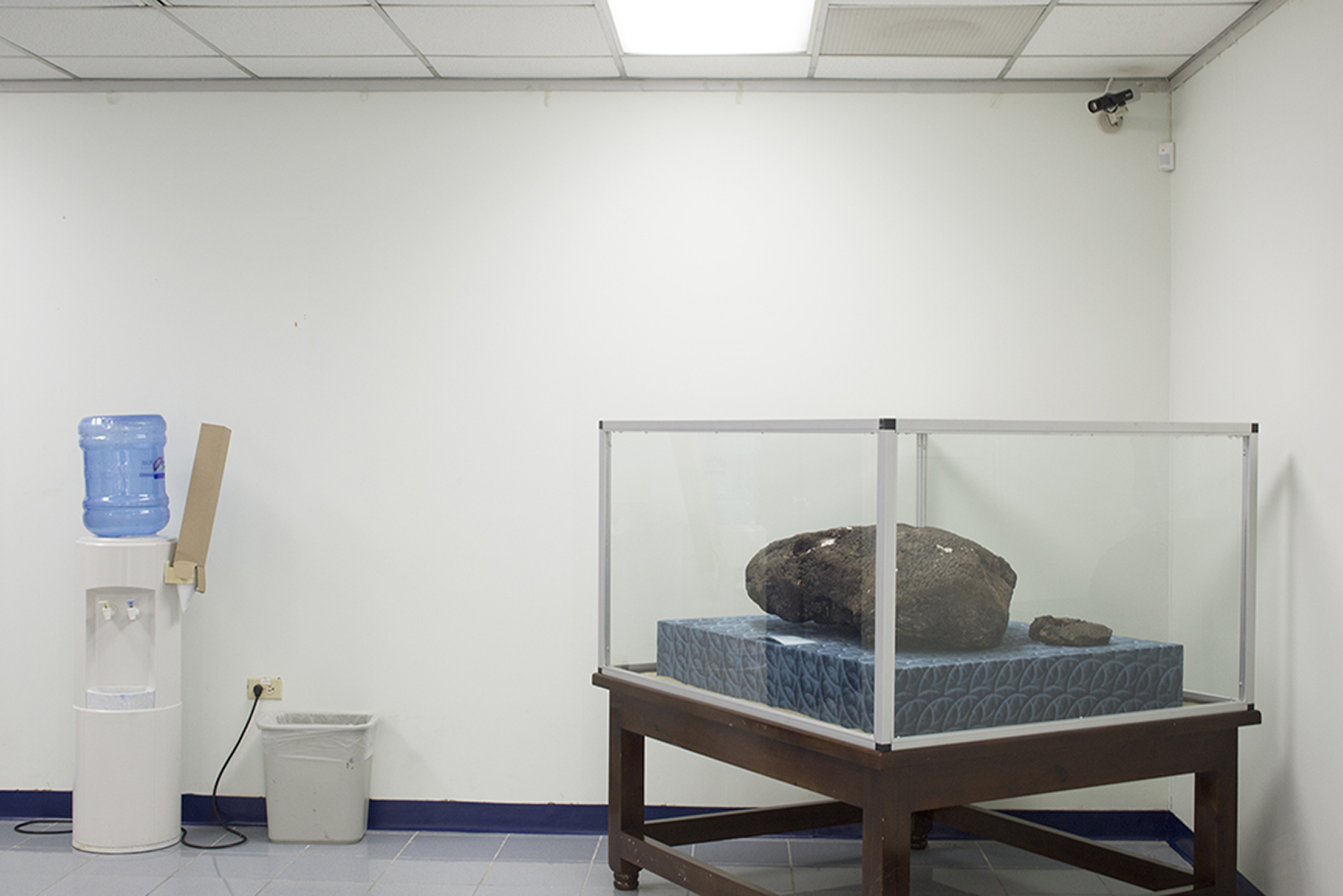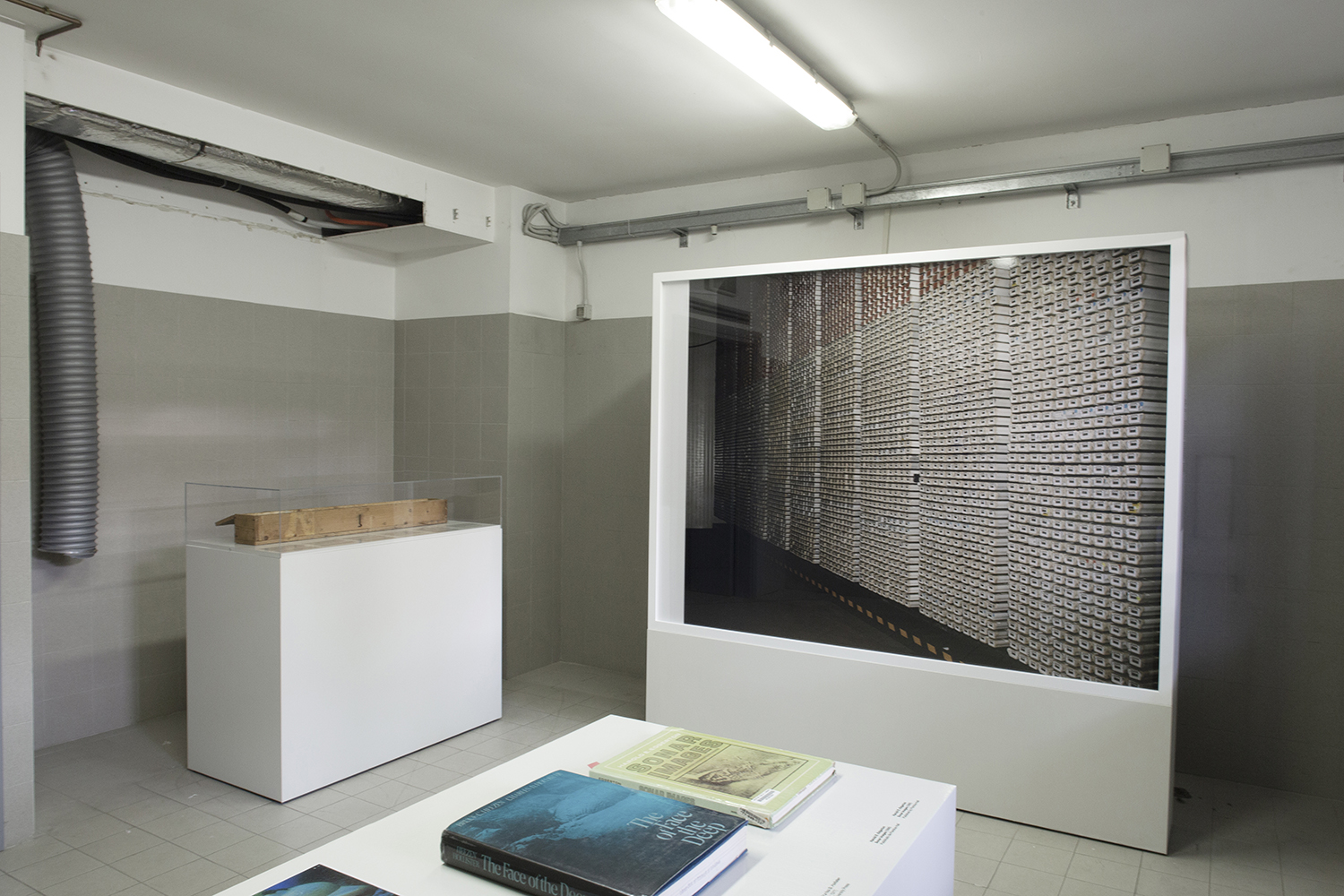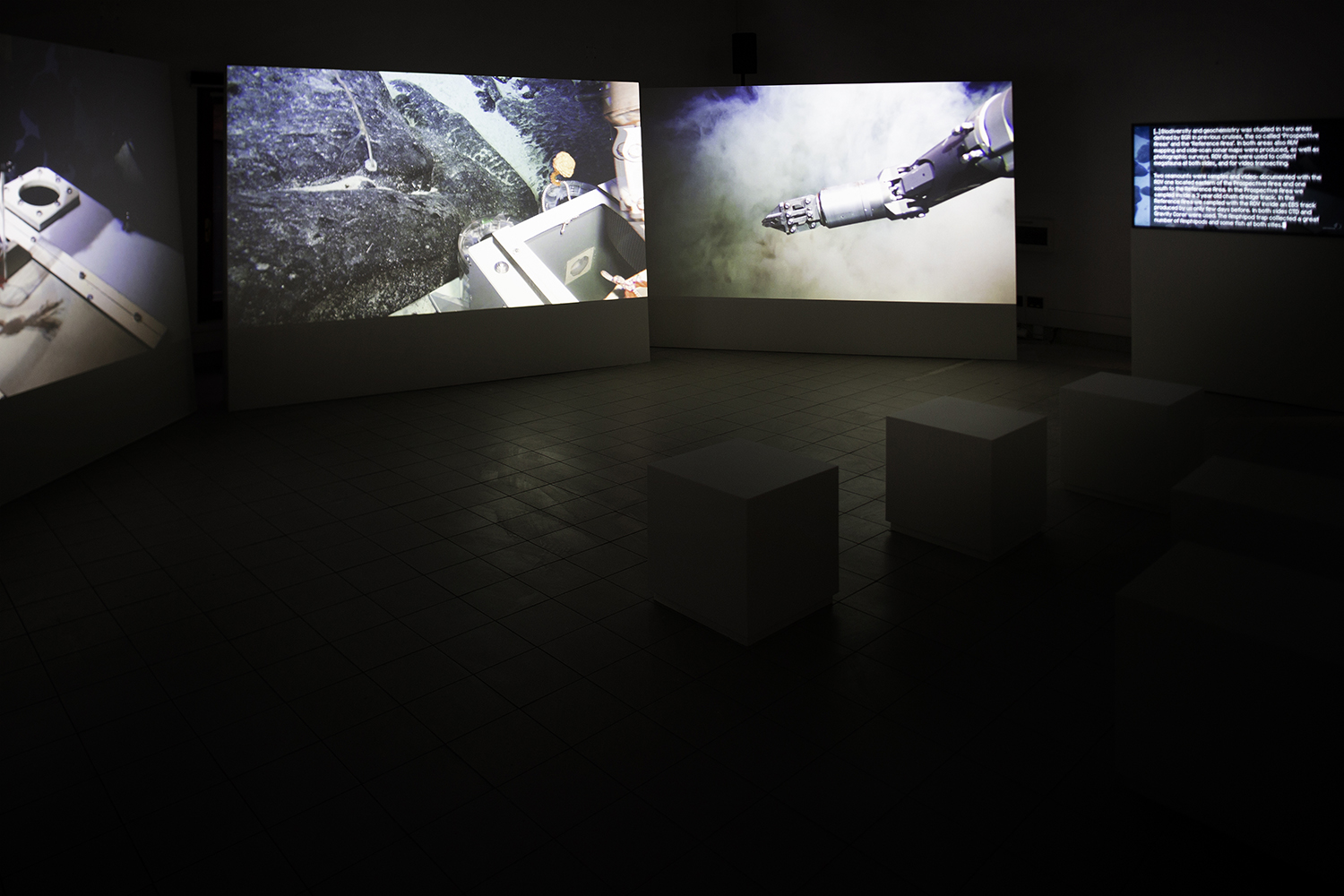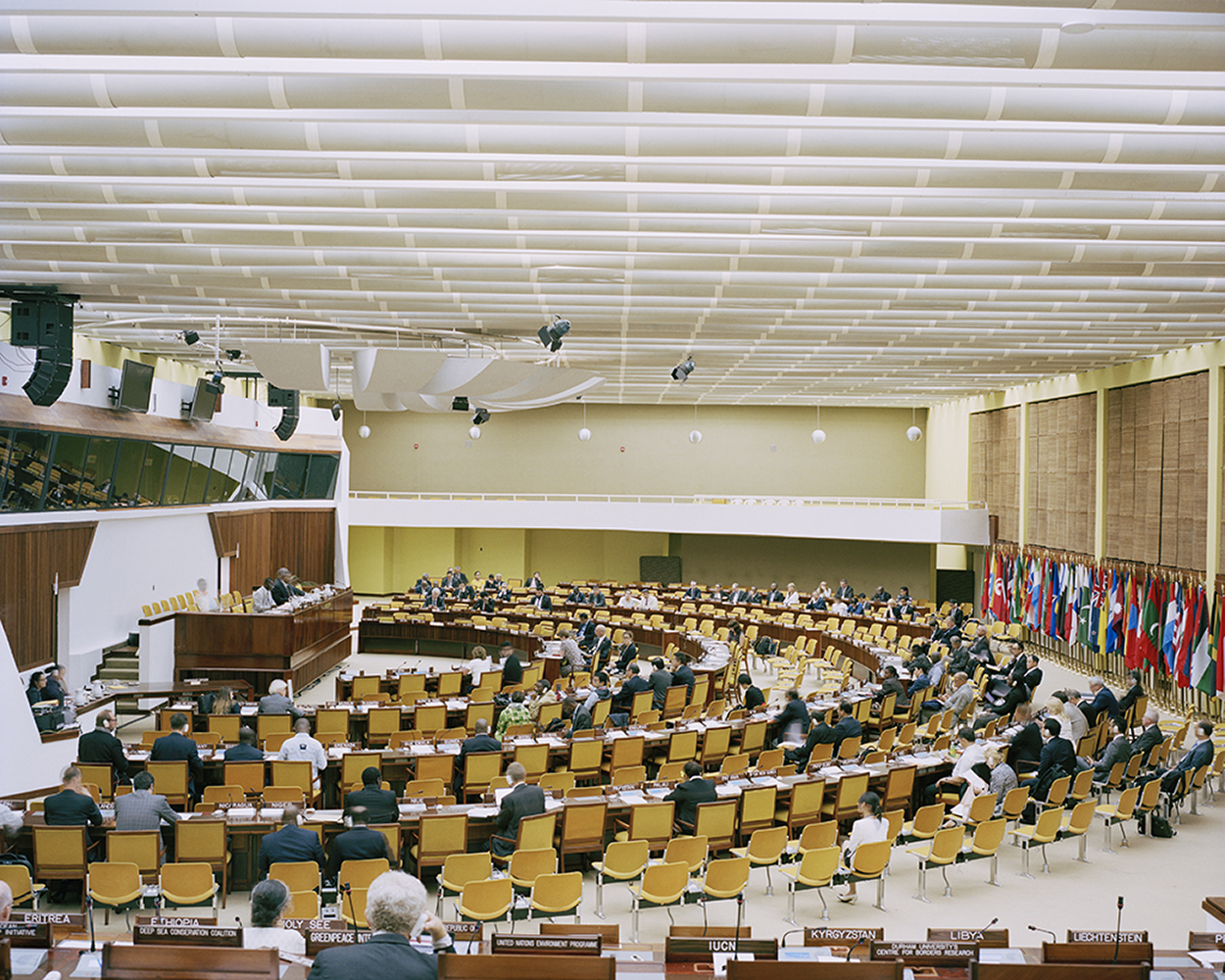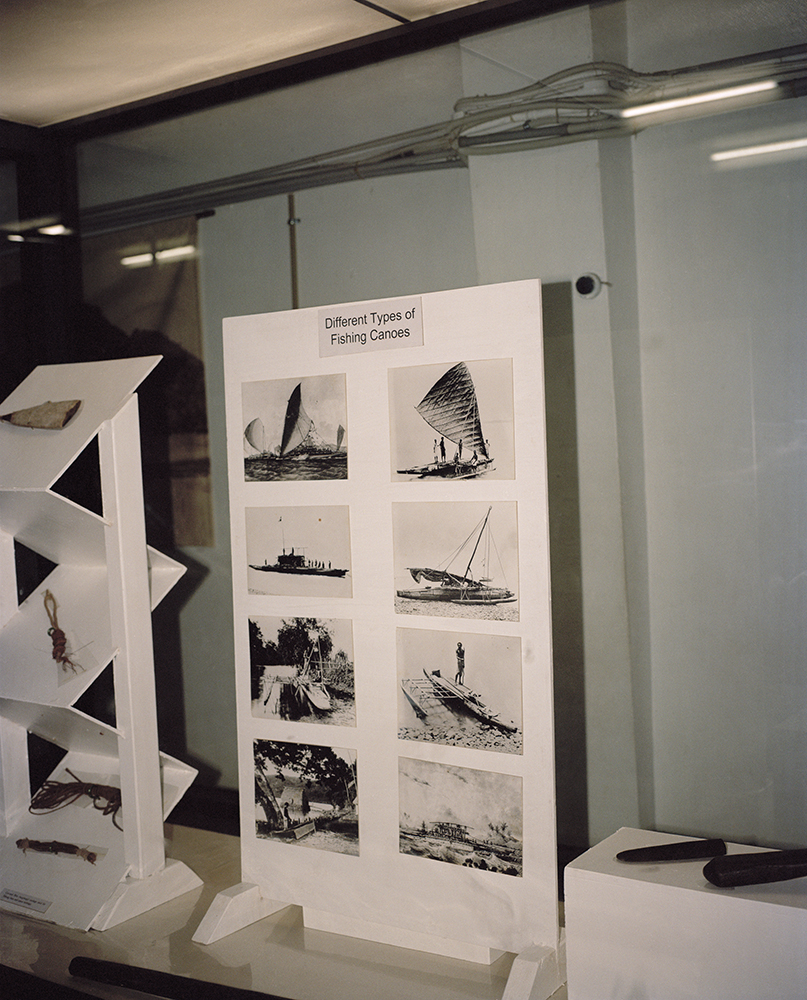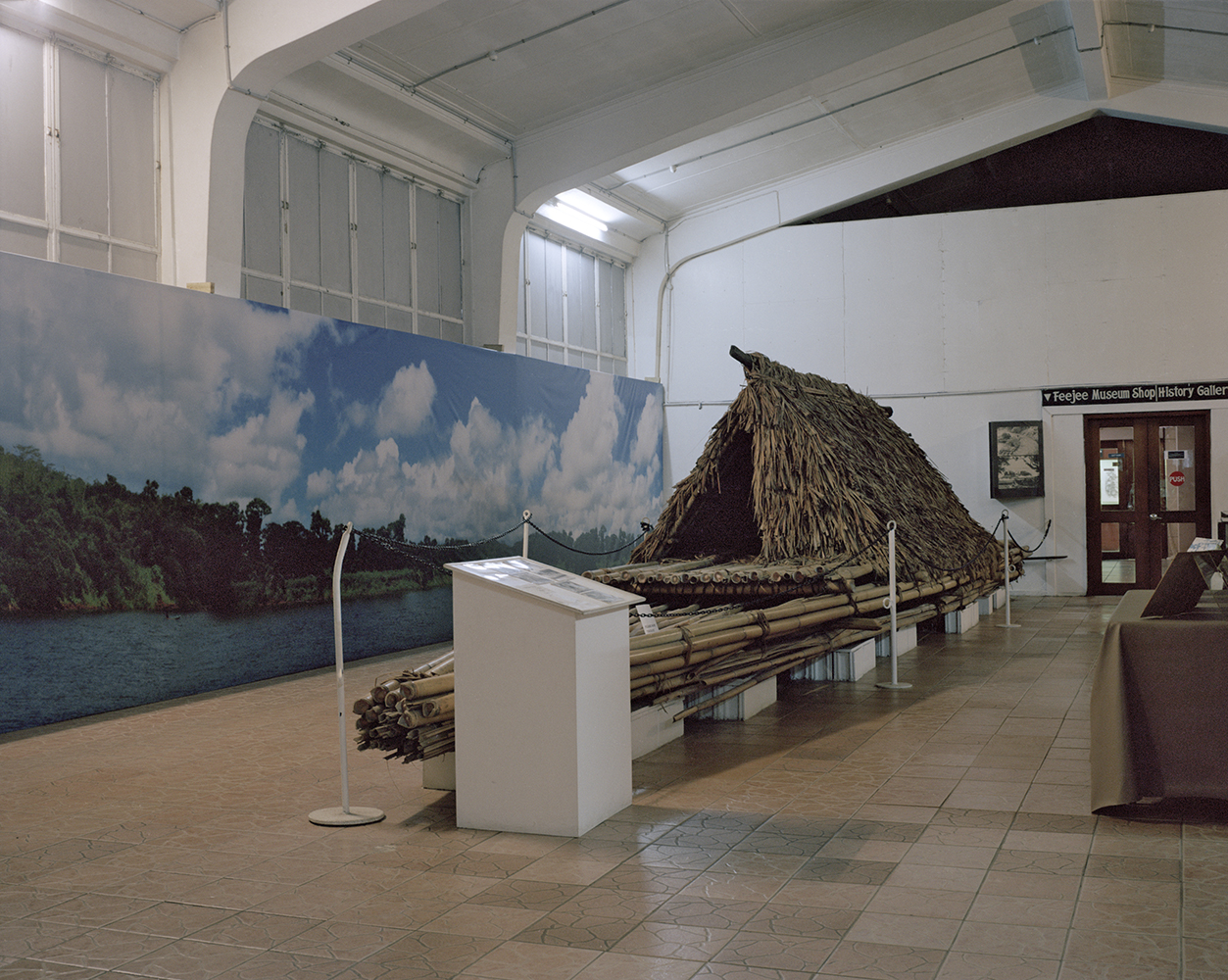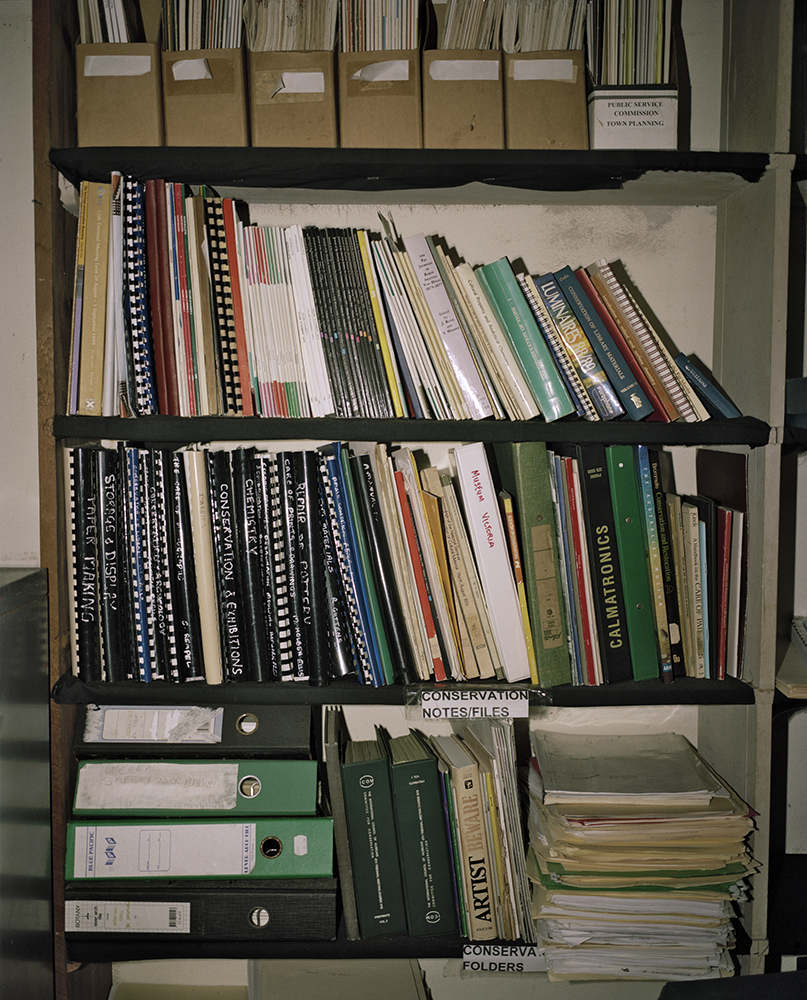
Installation view of Armin Linke’s exhibition Prospecting Ocean, at CNR-ISMAR, curated by Stefanie Hessler, commissioned and produced by TBA21–Academy, Venice, Italy, 2018 © Giulia Bruno.
Projects
Earth Indices. Processing the Anthropocene.
Documents
Prospecting Ocean
The research and exhibition project Prospecting Ocean was commissioned and produced by TBA21–Academy and was first presented in 2018 at the Institute of Marine Sciences of the National Research Council of Italy (CNR-ISMAR) in Venice, curated by Stefanie Hessler. Prospecting Ocean emerged from Linke’s long-term Anthropocene research and his participation in three expeditions to the Pacific Ocean with TBA21–Academy’s exploratory program The Current, curated by Ute Meta Bauer. The book on the project, written by Stefanie Hessler, with a visual essay by Armin Linke and a foreword by Bruno Latour, has been published by The MIT Press in 2019.
Climate Crisis and Cultural Loss
This twofold exhibition marks the conclusion of the eponymous research project led by Principal Investigator Ute Meta Bauer at NTU ADM. The inquiry started by asking: how has the slow erosion of diverse, multicultural, and more-than-human ways of living over time impacted the environments in which we live, and what are the longer-term consequences on habitats? Can we begin again with culture, to induce a necessary paradigm shift in the way we think about and respond to the climate crisis? Extending connections and conversations seeded during the inaugural cycle of TBA21–Academy’s The Current fellowship programme led by Bauer from 2015 to 2018, Climate Crisis and Cultural Loss continues to build archipelagic networks across the Alliance of Small Island Developing States, deepening existing collaborations with Oceania Centre for Arts, Culture and Pacific Studies in Fiji, and developing new ones further in the South Pacific Ocean, through the art and media non-profit organisation Further Arts in Vanuatu.
Bridging conversations from the Pacific to Singapore in the Riau Archipelago, former fellows of TBA21–Academy’s The Current and current research collaborators artist Nabil Ahmed, social anthropologist Guigone Camus, artist Kristy H.A. Kang, legal scholar Hervé Raimana Lallemant-Moe, and artists Armin Linke and Lisa Rave, join Singapore-based researchers Co-Investigator Yun Sang-Ho and members of the Earth Observatory of Singapore – Remote Sensing Lab (EOS–RS), NTU ADM research staff Soh Kay Min and Ng Mei Jia, historian Jonathan Galka, and community organiser Firdaus Sani, as they explore the impacts of extreme weather, rising seas, climate displacement, ocean resource extraction, and the disappearance of material cultural traditions, occurring across what the visionary Pacific thinker Epeli Hau’ofa has termed “our sea of islands.” Featuring interviews, data visualisations, documentation, writings, and artisanal crafts made in collaboration with or generously gifted to the research team by knowledge bearers, community leaders, scientists, scholars, and artists, including writer and curator Frances Vaka’uta, masi artist Igatolo Latu,human rights defender Anne Pakoa and anthropologist Cynthia Chou, the exhibitions present the rich, complex, and multi-layered research findings accumulated over three years, since the Climate Crisis and Cultural Loss project first started in 2021.
At TBA21–Academy’s Ocean Space, the Climate Crisis and Cultural Loss research inquiry sits adjacent to the exhibition Restor(y)ing Oceania, comprising two new site-specific commissions by Latai Taumoepeau and Elisapeta Hinemoa Heta. Curated by Bougainville-born artist Taloi Havini, whose curatorial vision is guided by an ancestral call-and-response method, the exhibition materialises as a search for solidarity and kinship in uncertain times, in order to slow down the clock on extraction and counter it with reverence for the life of the Ocean.
At ADM Gallery, Climate Crisis and Cultural Loss is presented alongside the companion show Sensing Nature, curated by Gallery Director Michelle Ho. The exhibition showcases artists representing diverse disciplines, each offering their interpretation of the natural world and its intersection with urban life. Through reflection and experimentation, these works invite viewers to reassess our perceptions and behaviors toward the environment and phenomena beyond human influence. They advocate for a renewed understanding of society’s connection to nature and the land.
Climate Crisis and Cultural Loss is supported by the Ministry of Education, Singapore, under its Academic Research Fund Tier 2 grant. The research presentation at Ocean Space coincides with the 60th International Art Biennale in Venice, Italy, with public programmes taking place through the exhibition durations in both Venice and Singapore.
Biography
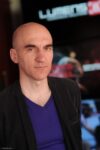
Armin Linke (b. 1966, Milan) is a photographer and filmmaker combining a range of contemporary image processing technologies to blur the border between fiction and reality. Linke indagates the formation – so called Gestaltung - of the natural, technological and urban environment in which we are living. Armin Linke´s oeuvre - photographs and films - function as tools to become aware of the different design strategies. Through working with his own archive, as well as with other media archives, Linke challenges the conventions of photographic practice, whereby the questions of how photography is installed and displayed become increasingly important. In a collective approach with other artists, as well as with curators, designers, architects, historians, philosophers and scientists, the narratives of his works expand on the level of multiple discourses. Linke has served as a research affiliate at the MIT Visual Arts Program, guest professor at the IUAV Arts and Design University in Venice, and professor for photography at the Karlsruhe University for Arts and Design. Currently Armin Linke is guest professor at ISIA, Urbino (IT) and artist in residence at the KHI Kunsthistorisches Institut in Florenz [1].
[1] Armin Linke, “Armin Linke,” www.arminlinke.com, accessed April 12, 2024, https://www.arminlinke.com/.
Armin Linke. Photograph by Miguel Bueno.
Videos
The Current Convening #3: Day 1, Session 2 - Short Provocations
Selected Exhibitions
Selected Solo Exhibitions
2021 Blind Sensorium: Visual Anthropology, Matadero Madrid - Center for Contemporary Creation, Madrid, ES
2020 Gallery of Futures, Patch 2: Armin Linke - 2036, BOZAR - Centre for Fine Arts, Brussels, BE
2018 Prospecting Ocean, Istituto di Scienze Marine (CNR-ISMAR), Venice, IT
2017 OCEANS Dialogues between Ocean Floor and Water Column, Edith-Russ-Haus für Medienkunst, Oldenburg, DE
Selected Group Exhibitions
2021 Aquaria. Or the Illusion of a Boxed Sea, MAAT - Museum of Art, Architecture and Technology, Lisbon, PT
2020 Down to Earth - Climate Art Discourse unplugged, Gropius Bau, Berlin, DE
2020 Critical Zones. Observatories for Earthly Politics, ZKM Center for Art and Media, Karlsruhe, DE
2019 Bruised: Art Action and Ecology in Asia, RMIT Gallery, Melbourne, AU
Selected Films
2021 Oceanarium
2019 Blind Sensorium
2019 Fela Kuti and the Politics of Remembering
2018 Multilingualism at the European Court of Justice
2018 Prospecting Ocean
2017 OCEANS. Dialogues between ocean floor and water column
2017 Pulau-pulau kelapa sawit [Palmölinseln / Islands of Palm Oil]
